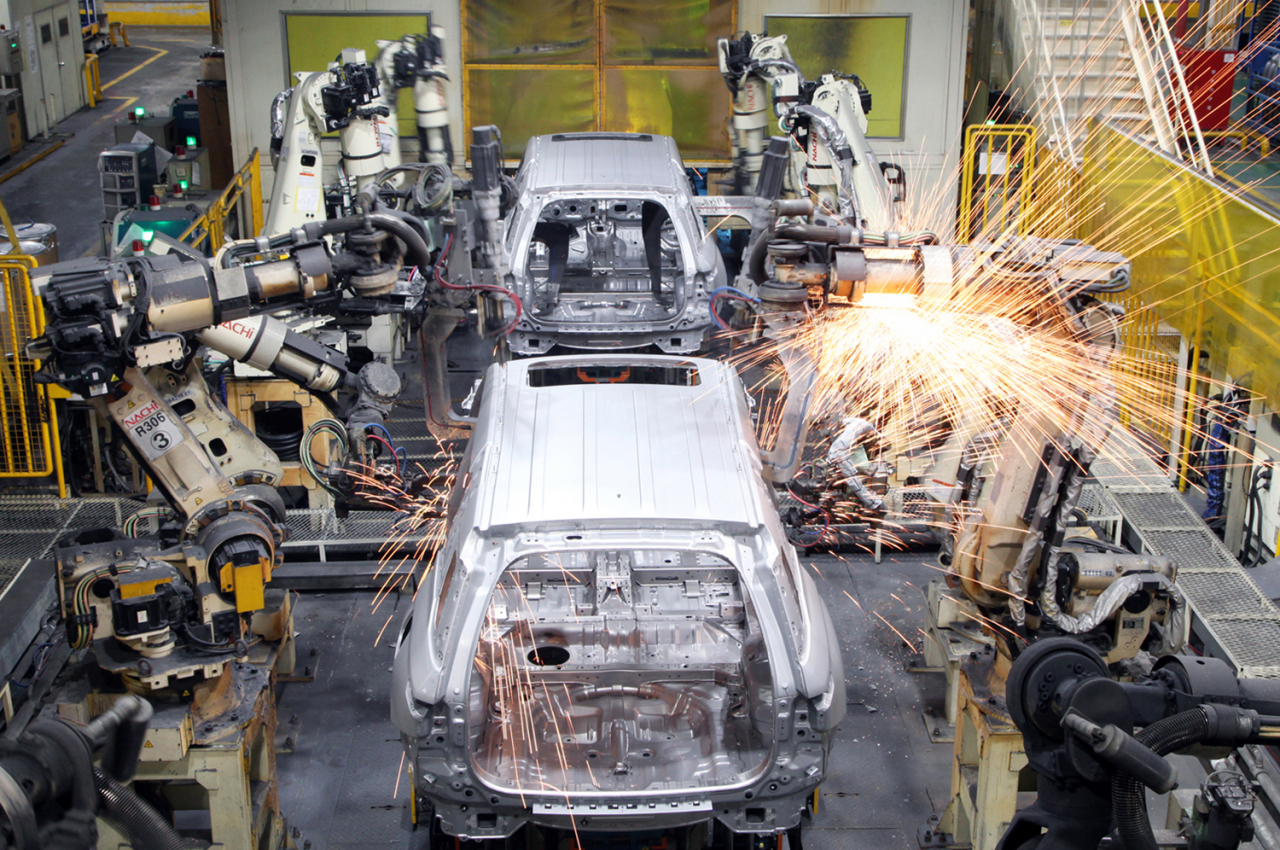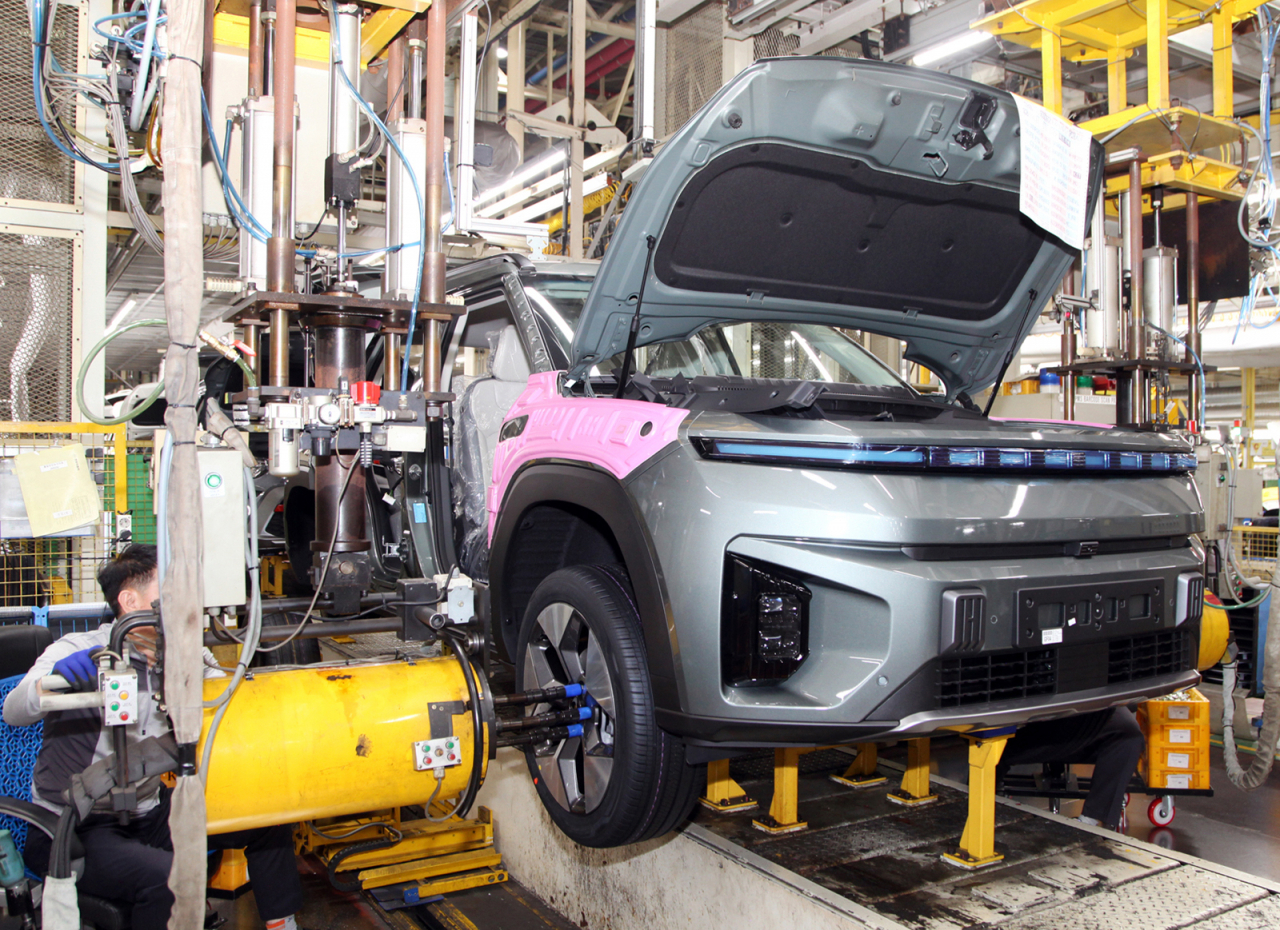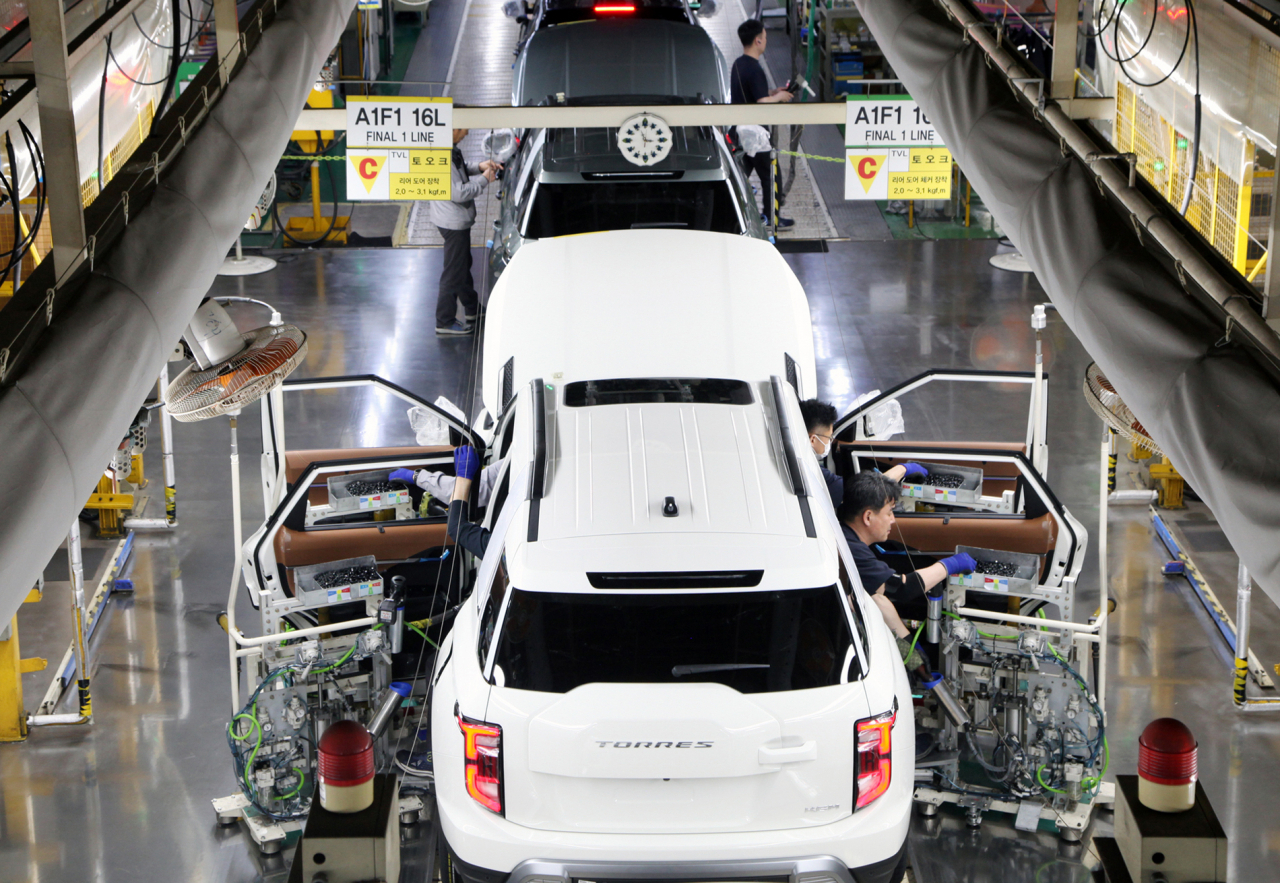 |
KG Mobility's Pyeongtaek plant in Gyeonggi Province (KG Mobility) |
PYEONGTAEK, Gyeonggi Province -- A group of workers gathered to check a computerized system at KG Mobility’s Pyeongtaek plant in Gyeonggi Province on Tuesday afternoon. While most workers were taking their 10-minute break, they came together to try to improve the workflow. That passion played a crucial role in the company logging its first profitable year in 2023 for the first time in 16 years, according to the Korean automaker’s head of production.
“I think (our turnaround) last year showed how important it is to have the right mindset,” said Park Jang-ho, head of production at KG Mobility, in a media roundtable held at the automaker’s Pyeongtaek plant.
“I always tell our production line workers that we are greeting our customers through our cars. We have to keep that in mind and do our best to make the best products.”
Established in 1979, the Pyeongtaek plant has lived through the ups and downs of Ssangyong Motor, which later turned to KG Mobility after KG Group’s takeover in November 2022. The manufacturing facility, which covers about 860,000 square meters with over 4,000 employees, is poised to open a new chapter as the automaker looks to expand its presence in the global market.
KG Mobility has kept its presence known in the land of Hyundai and Kia with its iconic sports utility vehicles. To better cope with fluctuating demand for different models, the automaker recently renewed its manufacturing lines at the Pyeongtaek plant through a 50 billion-won investment.
For the renovation that took about two months from October last year, the dark horse in SUVs combined two of its three assembly lines to make one assembly line that can manufacture vehicles in both monocoque and body-on-frame styles.
KG Mobility highlighted that the upgraded multimodal production capabilities gave the automaker more flexibility in terms of meeting customer needs. In fact, the vehicles being assembled in line were different models such as the Rexton, the Rexton Sports&Khan, the Musso and even the Torres EVX, an all-electric model of the brand’s popular SUV Torres, which was in the same assembly line.
 |
KG Mobility's Pyeongtaek plant in Gyeonggi Province (KG Mobility) |
About two to four workers were seen working on a vehicle at a time. They worked seamlessly between an internal combustion engine car and a battery-powered electric vehicle. KG Mobility said the integrated assembly line increased its production capacity from 22 to 30 vehicles per hour.
Park, the automaker’s head of production underscored that the increased proportion of overseas sales last year indicated the brand’s potential in the global market. Of the 116,099 units sold last year, 52,754 cars were exported -- up about 16.5 percent from 2022.
“The fact is that our decision-making became a lot quicker after KG Group acquired us,” he said.
“(KG Group Chairman Kwak Jea-sun) does not make every order by himself. He throws out an agenda and we fiercely debate the best solution. Once we have the answer, decisions are made and executed swiftly.”
The Torres EVX has been at the forefront of the SUV stalwart’s fearless march. The electric SUV was the fourth most-sold EV among the Korean-made vehicles in the country in the first quarter of this year with 1,870 units sold.
The automaker announced on Monday that it had logged 1 trillion won ($730 million) in sales and 15.1 billion won in operating profit in the first quarter of this year. Operating profit was up 61.1 percent from the same period last year. Export played a big part as nearly 60 percent of the 29,326 units sold in the first quarter went to overseas markets.
KG Mobility noted that it aims to begin mass production of a new electric pickup, which is being developed under the code name of O100, by the end of this year. The automaker first unveiled the electric pickup at the Seoul Mobility Show in March last year.
 |
KG Mobility's Pyeongtaek plant in Gyeonggi Province (KG Mobility) |







![[Today’s K-pop] Blackpink’s Jennie, Lisa invited to Coachella as solo acts](http://res.heraldm.com/phpwas/restmb_idxmake.php?idx=644&simg=/content/image/2024/11/21/20241121050099_0.jpg)